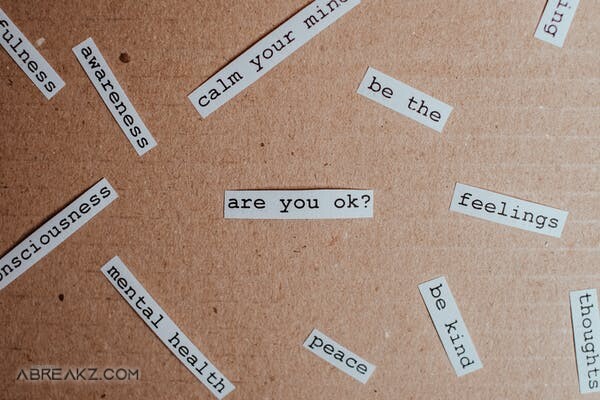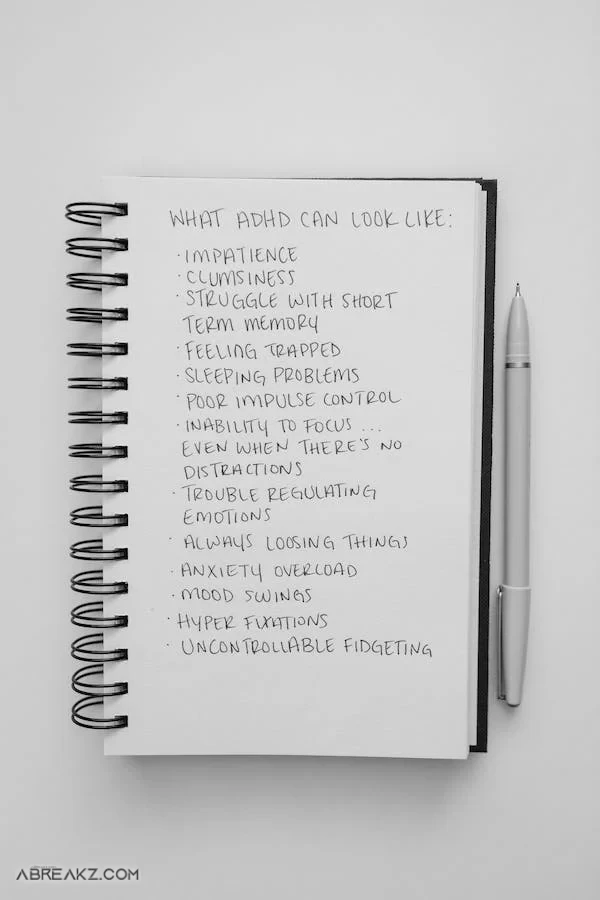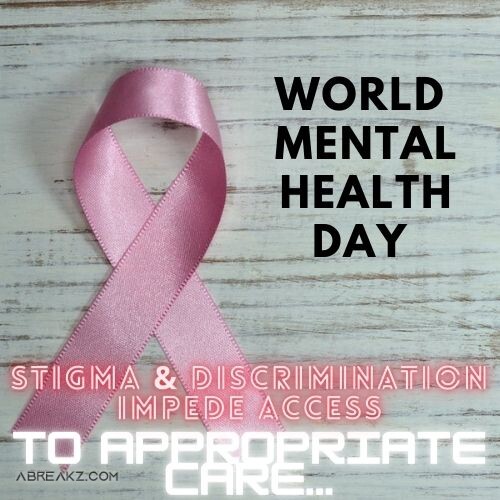On this day 10\6 October | every year, the world celebrates World Mental Health Day, which the World Health Organization celebrated this year 2022 under the slogan "Let's make mental health and well-being a comprehensive priority for all".
The Corona epidemic affected our mental health
The World Health Organization said in a statement on the occasion that the Corona epidemic has affected and continues to affect our mental health, considering that World Mental Health Day 2022 provides us with an opportunity to re-intensify efforts to protect and improve mental health.
According to the organization, before the outbreak of the epidemic in 2019, one in eight people globally had a mental disorder, adding that services, skills and funding available for mental health are insufficient and still far below what is required, especially in low- and middle-income countries.

The COVID-19 pandemic has caused a global mental health crisis, affecting millions. It is estimated that cases of both anxiety and depression rose by more than 25% during the first year of the epidemic, while mental health services were severely disrupted and the treatment gap widened.
WHO adds that stigma and discrimination continue to be a barrier to social inclusion and access to appropriate care; She called for raising awareness about ways to prevent mental health, considering that World Mental Health Day is an opportunity to do so collectively.
The organization also called for a "world in which mental health is valued, promoted and protected" and "equal opportunities for all to enjoy mental health, exercise human rights, and access the mental health care they need".
Stigma
The World Health Organization published the World Mental Health Report 2022, providing a blueprint for governments, academics, health professionals, civil society and others with ambition to support the world in changing mental health.
Devora Kestel, Director of Mental Health and Substance Use at the World Health Organization, says that the report focuses on several issues, most notably addressing the phenomenon of considering having mental illness or mental illness as a “stigma,” noting that “stigma, discrimination and human rights violations against people with mental illnesses are prevalent in societies and care systems.” Everywhere".

She adds that one of the strengths of the WHO Mental Health Report is that it includes the stories of more than 30 people who suffered from mental illness, but faced it with patience and perseverance.
"Their courage in telling their stories is commendable, and by hearing more similar experiences, we can learn effective support" for these patients, she said, calling for "mental health and well-being to be made a truly cross-cutting priority."

What Is Mental Health?
Mental health is a state of emotional, psychological and social well-being. It affects a person’s feeling, interaction, and adaptation to life and its events. It also determines how to deal with stress and how to make decisions.
Mental illness is a disorder that affects a person's way of thinking, mood and behavior, and is caused by several factors such as heredity, genes, and life events that a person goes through, such as exposure to stress, verbal or physical abuse, or harassment.

According to the World Health Organization, people with severe mental illness usually die earlier than healthy people, and this condition is called "premature mortality".
The life expectancy of people with severe mental illness is 10 to 25 years lower than that of healthy individuals (according to the organization, severe mental illnesses include psychosis, moderate to severe depression, and bipolar disorders).
The death rate for people with schizophrenia is two to two and a half times higher than for those without it, for people with depression it is 1.8 times, and for people with bipolar disorders the rate is between 35% and 100%.
Signs Of Mental Health Problems
There are signs that may indicate a mental health problem in a person, and his suffering from one or more of these symptoms indicates that, including:
Withdrawal from people and away from usual activities.
Sleep disturbances, such as decreased number of hours and difficulty sleeping or sleeping for a long time.
Eating disturbances, whether increased or decreased.
Feeling of indifference.
Feeling hopeless and helpless.
Experiencing severe mood swings.
Suffering from memories or thoughts that he cannot get rid of.
The illusion of hearing voices.
Believing illogical convictions.
Suffering from body aches that are not medically explained.
Thinking of harming himself or others.
Low energy level.
Inability to do normal daily activities, such as going to work.
Mental Health Awareness
Mental illness includes a wide range of disorders, including:
Depression
It is a mental illness characterized by irritability for a long time, and goes beyond mere sadness, and affects the behavior of the sufferer and his readiness for work and life, and may lead to serious consequences that may lead to suicide.
anxiety disorders
In which the person feels anxious and nervous unjustifiably or logically, and its symptoms include a constant feeling of fear and panic, difficulty sleeping, heart palpitations, and a feeling of tension in the muscles. It includes social phobia and generalized anxiety disorder.

bipolar disorders
Also called "manic-depressive" disorders, a person experiences severe fluctuations in mood, activity and behavior, ranging from a phase in which the patient goes through depression, low energy and withdrawal, and then moves to a phase of mania in which he is very active but abnormally, as his speech accelerates and suffers from The thoughts that attend him frequently, he has difficulty sleeping or may not feel tired, and he may believe in irrational convictions about his abilities

schizophrenia
It is a mental illness in which the patient hears or sees things that do not exist, and has incorrect convictions such as that others can read his thoughts, or that the jinn or demons are possessing or controlling him. Schizophrenia is a severe chronic disease that disables the sufferer from continuing his life.
eating disorders
It results from a psychological disorder that leads to an abnormal attitude towards food, which leads to a person changing his eating habits and behavior, and its repercussions are:
Anorexia nervosa, in which a person tries to keep his or her weight as low as possible by starvation or excessive exercise.
Bulimia, in which a person eats food and then tries to get rid of it by vomiting or taking laxatives.
Binge eating, in which a person feels compelled to eat a large and excessive amount of food.








































